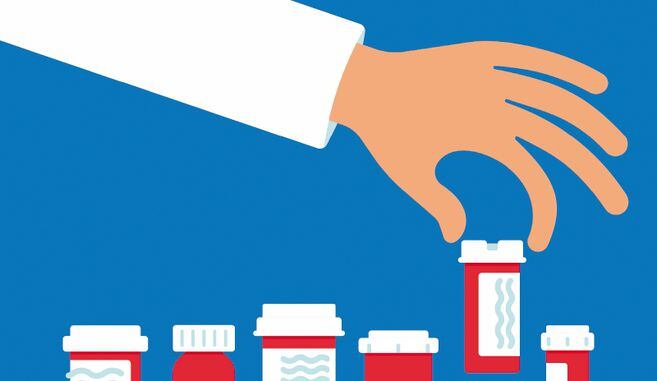
An investigation established that there were 29,853 drug errors in Colombia between 2018 and 2019, but a very small margin could have consequences for the patient. Only 5% of errors are reported.
You may have gone to the pharmacy in your neighborhood or to the EPS medicine dispensary, and they will give you a medicine that was not what your medical order says. Drug errors are unlikely, but they do happen in Colombia.
It is estimated, for example, that 7% of hospital prescriptions have medication errors (although only 0.18%) are serious. According to a 2013 study conducted in patients hospitalized without seriousness in Pereira, there are errors in the vast majority of prescriptions, such as failure to register drugs during treatment (in 97.3% of cases) or in the route of administration (12.9% ). In another study, 14,873 medication errors were found, of which 79 caused some damage to the patient.
Even so, it is estimated that only 5% of drug errors are reported. This is why a group of researchers from the National Institute of Health (INS) has taken on the task of determining the prevalence and frequency of medication errors that were reported between 2018 and 2019 in the country.
The study, published this week in the journal Biomedical, was immersed in the databases of drug error records of Audifarma, a logistics operator that distributes drugs to 8.5 million outpatients affiliated to 17.7% of Colombia’s population.
Read: Medication errors, a problem that did not start with Bucaramanga
A medication error may consist of delays in the delivery, prescription, distribution, or consumption of the drug by the patient. The causes vary: it may be overwork, the lack of concentration of the official or the similarity between names or packaging that facilitates the error, among others.
Each error is recorded by the official who detects it (medical or medical staff, or pharmaceutical staff and others) in a virtual application and is stored in a database. According to the results, approximately 152 million drugs were released (72,042,919 in 2018 and 80,766,727 in 2019 and 29,853 outpatient drug errors were reported, almost the same year on year: 14,596 in 2018 and 14,942 in 2019 , in the 417 pharmaceutical units of Audifarma, the vast majority in Bogota, then Cali, Medellín Valledupar, Popayán and Tuluá.
It was established that there were 1.93 medication errors per 10,000 drugs released and only 0.02% of cases affected the patient. Most errors are related to poor concentration when administering the drug and the phonetic similarity of the drug name, as well as errors in product storage. Into the top 10 of the drugs most involved in errors are: losartan, levothyroxine, acetylsalicylic acid, atorvastatin, acetaminophen, insulin, esomeprazole, antacids, hydrochlorothiazide and naproxen.
Most of these drugs have a high circulation and treat chronic non-communicable diseases (such as muscle pain or heartburn), but with the exception of thyroid hormone, they do not have a narrow therapeutic window and, in principle, would have lower risks for the patient who would it must reach your hands by mistake. “Medication errors are a major issue that deserves the attention of health authorities, whose actions should focus on ensuring patient safety, in addition to achieving the desired effectiveness,” the study concludes.